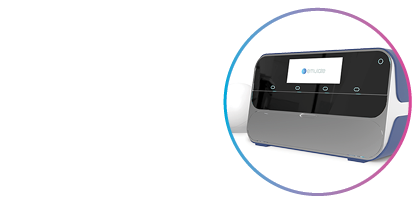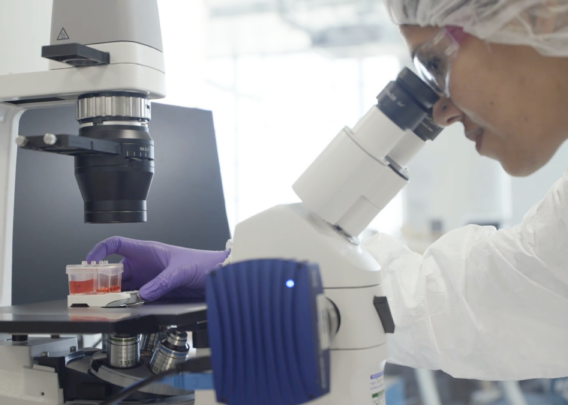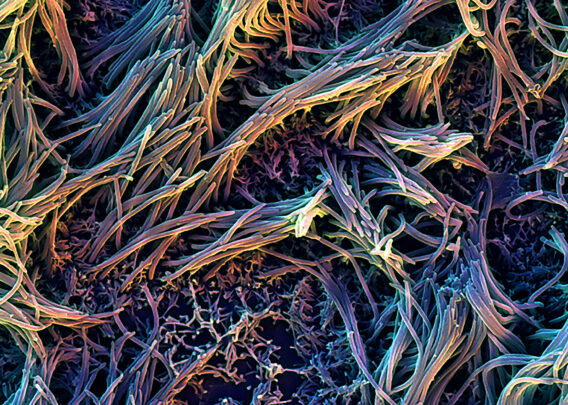Human Organs-on-Chips will now compete with other category winners, such as Google’s Self Driving Car, for overall Design of the Year award. Annual design awards presented by London’s Design Museum
Emulate, Inc., today announced that the company’s Organs-on-Chips have won the 2015 Designs of the Year Award in the best Product Design category presented by London’s Design Museum. The annual awards recognize the most innovative, interesting, high-impact and forward-looking designs from all over the world.
Emulate’s Organs-on-Chips were awarded best Product Design based on three working representations of the Organs-on-Chips – the Lung-on-Chip, the Gut-on-Chip, and the Liver-on-Chip – which offer a new way to accurately witness the inner-workings of the human body to predict human response and create better and safer products. In the Transport Design category, Google’s Self Driving Car was named the winner for its potential to make travel safer, easier and more enjoyable. Both new product designs from Emulate and Google offer a transformative effect on major industries, with the potential to create positive social impact in everyday human life. They exemplify the criteria for this year’s awards for designs that promote or deliver change, with the ability to stimulate a whole industry to innovate and improve.
Emulate has elegantly integrated biology, engineering and design to create Organs-on-Chips that mimic human biological function and create a new paradigm that can profoundly impact human health.
— David Edwards, Ph.D., Professor at Harvard’s School of Engineering and Applied Science, founder and director of Le Laboratoire Paris, founder of Le Lab Cambridge, and member of Emulate’s Scientific Advisory Board
“Organs-on-Chips are the basis of a new technology platform that provides a window into human biology and opens up entirely new possibilities to design better and safer products, as well as applications in personalized health for consumers,” said Geraldine A. Hamilton, Ph.D., President and Chief Scientific Officer of Emulate. “It is a high honor for our Organs-on-Chips to be awarded the Best Product Design and it motivates us to continue our progress in commercializing our technology across many industries – including pharmaceuticals, healthcare, agriculture and consumer products – to improve human health.”
Emulate’s “Organs-on-Chips” are featured, alongside Google’s Self Driving Car, at the Design of the Year exhibition which is open to the public through March 31, 2016, at the Design Museum in London. Four other winners were selected in other categories including architecture, fashion, digital and graphic design. The six winning designs will now compete for the overall Design of the Year 2015 award. The overall winner will be announced in June. Gemma Curtin, Curator of Designs of the Year 2015, commented, “This year’s judges were united in their responsibility to award projects that emphasize design’s impact on our lives now and in the future. Solving diverse problems with innovation, intelligence and wit, each of these six designs is a worthy winner.”
“Emulate has elegantly integrated biology, engineering and design to create Organs-on-Chips that mimic human biological function and create a new paradigm that can profoundly impact human health,” said David Edwards, Ph.D., Professor at Harvard’s School of Engineering and Applied Science, founder and director of Le Laboratoire Paris, founder of Le Lab Cambridge, and member of Emulate’s Scientific Advisory Board. “It is exciting to see the Organs-on-Chips technology as part of these exhibitions on public display, so that members of the community can get a first-hand view of a technology that is in the midst of transforming many products that impact our everyday lives, from medications to cosmetics products to a person’s own cells on a chip.”
Emulate is commercializing the Organs-on-Chips technology that is based on pioneering work conducted by Donald Ingber, M.D., Ph.D. and his team at the Wyss Institute for Biologically Inspired Engineering at Harvard University. Each Organ-on-Chip can contain tens of thousands of cells in tiny, hollow channels and is approximately the size of a memory stick. The Organs-on-Chips are designed to recreate human biology, emulating dynamics of organs at the cellular level with unprecedented precision, reproducibility and control.
Organs-on-Chips for Predicting Human Biology
Emulate’s Organs-on-Chips provide the basis for a new living technology platform containing human cells in engineered microenvironments. Human Organs-on-Chips are miniaturized living biochips which offer a new way to accurately witness the inner-workings of the human body. The chips contain tiny hollow channels lined by living human cells and tissues cultured under continuous fluid flow and mechanical forces, such as cyclic breathing and peristalsis, which effectively recapitulate organ-level physiology and disease responses. Multiple Organs-on-Chips, such as lung, liver, intestine, kidney, skin, eye, and blood-brain-barrier, can be linked together by flowing liquid containing nutrients to simulate blood or blood itself to create a Human Emulation Platform that closely replicates whole body-level responses.
About Emulate Inc.
Emulate, Inc. is a private company focused on commercializing Organs-on-Chips as an automated human bioemulation platform that achieves a new standard for mimicking true human physiology so that responses to medicines, chemicals and diseases can be accurately predicted. Through co-innovation with collaborators and internal programs, Emulate is advancing product innovation, design and safety across a range of applications in drug development, personalized health, agriculture and chemical-based consumer products. For more information, visit www.emulatebio.com.



